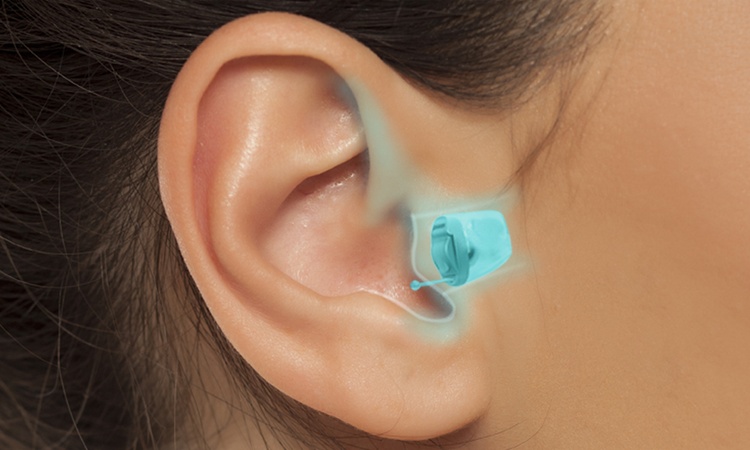Hearing Aids for Seniors: Features, Benefits, and How to Choose
Hearing aids for seniors are designed to improve sound clarity, reduce background noise, and enhance daily communication. With options that fit discreetly in or behind the ear, many models now include Bluetooth, rechargeability, and easy controls. Some providers offer free trials or payment plans to make them more accessible.

What are the key features of hearing aids for seniors?
Hearing aids for seniors are equipped with a range of features tailored to address the unique challenges faced by older adults with hearing loss. Some of the most important features include:
-
Digital noise reduction: This technology helps filter out background noise, making it easier to focus on conversations and important sounds.
-
Directional microphones: These microphones amplify sounds coming from in front of the user while reducing noise from other directions, improving speech clarity in noisy environments.
-
Feedback cancellation: This feature eliminates annoying whistling sounds that can occur when sound leaks out of the hearing aid and is re-amplified.
-
Telecoil technology: A telecoil allows users to connect directly to compatible sound systems in theaters, churches, and other public spaces for improved audio quality.
-
Bluetooth connectivity: Many modern hearing aids can connect wirelessly to smartphones, TVs, and other devices, streaming audio directly to the user’s ears.
How do hearing aids benefit elderly users?
Hearing aids offer numerous benefits for seniors, significantly improving their quality of life and overall well-being. Some of the key advantages include:
-
Enhanced communication: By amplifying sounds and improving speech clarity, hearing aids help seniors engage in conversations more easily, reducing feelings of isolation and frustration.
-
Increased safety: Better hearing allows seniors to be more aware of their surroundings, including potential hazards like approaching vehicles or home alarms.
-
Cognitive health: Studies have shown that addressing hearing loss can help slow cognitive decline and reduce the risk of dementia in older adults.
-
Improved balance: Hearing aids can contribute to better spatial awareness and balance, potentially reducing the risk of falls in seniors.
-
Greater independence: With improved hearing, seniors can maintain their independence longer, participating in social activities and daily tasks with greater confidence.
What styles of hearing aids are available for seniors?
Hearing aids come in various styles to suit different needs and preferences. The most common types for seniors include:
-
Behind-the-ear (BTE): These devices sit behind the ear and connect to a custom earpiece. They are easy to handle and suitable for most types of hearing loss.
-
Receiver-in-canal (RIC): Similar to BTE aids, but with a smaller behind-the-ear component and a thin wire connecting to the receiver in the ear canal. They are less visible and comfortable for many users.
-
In-the-ear (ITE): These custom-molded devices fit entirely within the outer ear, offering a balance between visibility and ease of use.
-
In-the-canal (ITC) and Completely-in-canal (CIC): These smaller devices fit partially or completely in the ear canal, offering the most discreet option but may be more challenging to handle for some seniors.
How can seniors choose the right hearing aid?
Selecting the right hearing aid involves several considerations:
-
Audiologist consultation: Work with a qualified audiologist to assess your hearing loss and determine the most suitable type of hearing aid.
-
Lifestyle needs: Consider your daily activities and environments when choosing features like directional microphones or Bluetooth connectivity.
-
Dexterity and vision: If you have limited dexterity or vision problems, opt for larger devices that are easier to handle and adjust.
-
Budget: Hearing aids vary widely in price. Discuss your budget with your audiologist to find a device that meets your needs without breaking the bank.
-
Trial period: Many providers offer a trial period. Take advantage of this to ensure the hearing aid meets your expectations in real-world situations.
What are the costs associated with hearing aids for seniors?
Hearing aid prices can vary significantly depending on the technology, features, and provider. Here’s a general overview of hearing aid costs and options:
| Provider | Basic Model | Mid-Range Model | Premium Model |
|---|---|---|---|
| Costco | $1,399-$1,699 | $2,099-$2,499 | $2,799-$3,199 |
| Eargo | $1,450-$1,950 | $2,450-$2,950 | $2,950-$3,500 |
| Audicus | $699-$999 | $1,399-$1,699 | $2,099-$2,499 |
| Lively | $1,195-$1,595 | $1,595-$1,995 | $2,195-$2,595 |
| ReSound | $1,000-$2,000 | $2,000-$3,500 | $3,500-$6,000 |
Prices, rates, or cost estimates mentioned in this article are based on the latest available information but may change over time. Independent research is advised before making financial decisions.
It’s important to note that many insurance plans, including some Medicare Advantage plans, may cover part of the cost of hearing aids. Additionally, some providers offer financing options to make hearing aids more accessible to seniors on fixed incomes.
In conclusion, hearing aids can significantly improve the quality of life for seniors experiencing hearing loss. By understanding the features, benefits, and options available, older adults can make informed decisions about which hearing aid best suits their needs and lifestyle. Remember to consult with a qualified audiologist to ensure you choose the most appropriate device for your specific hearing requirements.




